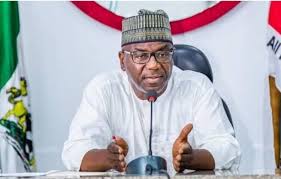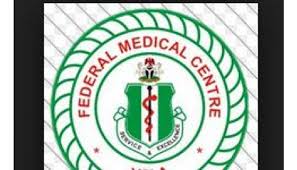Health
World Immunization Week: UNICEF Organizes Media Dialogue for Journalists
From Mike Tayese, Yenagoa
As part of activities marking the World Immunization Week 2025, the United Nations Children’s Fund (UNICEF) has organized a two day Media Dialogue with journalists across the 12 states cover by their operations.
The media dialogue by UNICEF in collaboration with Broadcasting Corporation of Abia state took place at Fidelma Hotel Enugu state had in attendant media practitioners from Abia, Akwa Ibom, Anambra, Bayelsa, Cross river, Benue, Ebonyi, Enugu, Rivers, Delta, Imo and Kogi states.
In her opening remark, Chief of Field Office UNICEF, Enugu, Juliet Chiluwe, at the Two-Day Multi Zonal Media Dialogue on 2025 World Immunization Week (WIW), Heralding the Theme:: ‘Immunization for All is Humanly Possible’ said the occasion was to foster dialogue that will help promote and provide quality immunization services to everyone, especially the children we serve.
“Today kick-starts the WIW commemoration across the world and UNICEF joins efforts with health care providers and governments to promote the values of immunization services as should, which entails getting to the last mile.
“UNICEF uses this opportunity to emphasize that Vaccines are proof that less disease, more life is possible when we put our minds to it. It’s time to show the world that ‘Immunization for All is Humanly Possible’. Vaccines remain one of humanity’s greatest achievements and over the last 50 years, essential vaccines have saved at least 154 million lives. That’s 6 lives a minute, every day, for five decades.
“In 2025, as we approach World Immunization Week (WIW) 2025, themed, “Immunization for All is Humanly Possible”, it’s essential to underscore the continued relevance of this global observance. The theme reaffirms the feasibility and necessity of protecting everyone, from newborns to the elderly, against vaccine-preventable diseases, through inclusive and equitable immunization services.
“In all these years UNICEF, in partnership with the media as a reliable ally and other development partners, continued to provide strategic and operational support in the following areas: Advocacy, Communication, and Social Mobilization (ACSM)
Logistics and Cold Chain Support:
Infrastructure Strengthening such as establishment of oxygen gas plants to strengthen health systems in states Routine Immunization Support”.
Juliet commended the contributions from state governments that compliments UNICEF’s efforts and urge them not relent in this partnership but build momentum on progress made so far by continuing to provide budgetary allocations to ensure they get to the last mile where every eligible child gets lifesaving vaccines to survive and reach their full potentials.
Health
WHO Declares Mpox Public Health Emergency Concern

The World Health Organisation (WHO), says said the Mpox upsurge has continued to meet the criteria of a Public Health Emergency of International Concern (PHEIC) set forth in the International Health Regulations (IHR).
Dr Tedros Ghebreyesus, WHO Director-General said this in a statement.
Ghebreyesus said the announcement followed the fourth meeting of the IHR emergency committee regarding the upsurge of mpox, held on June 5.
According to him, the committee, recognising progress in the capacity to respond in certain countries, advised the WHO boss that the event continues to constitute a PHEIC.
He said that it was based on the continuing rise in number of cases, including a recent increase in West Africa, and likely ongoing undetected transmission in some countries beyond the African continent
“Ongoing operational challenges in responding to the event, including concerning surveillance and diagnostics, as well as a lack of funding, make prioritising response interventions challenging and require continued international support,” he said.
Ghebreyesus concurred with the committee’s advice and issued the committee’s revised temporary recommendations to Member States experiencing mpox outbreaks.
He said the recommendations will guide countries’ efforts to prevent and control spread of the disease.
According to him, the full report of the fourth meeting will be issued in the third week of June.
“The upsurge of mpox in the Democratic Republic of the Congo and its spread to neighbouring countries was first determined to be PHEIC by Ghebreyesus on Aug. 14, 2024.
“Since then, the committee has met on three additional occasions, each time, advising the director general that the event continues to constitute a PHEIC,” he said (NAN)
Health
First Lady, Remi Tinubu, Distributes 10,000 Professional kits to Midwives in South-East

Nigeria’s First Lady, Sen. Oluremi Tinubu, on Monday in Enugu, distributed 10,000 Professional Kits for midwives in South-East aimed improving healthcare delivery in the zone.
Flagging-Off the programme during her two-day official visit to Enugu State , the president’s wife said the distribution were for midwives in the Southeast States of Abia, Anambra, Ebonyi Enugu and Imo.
According to her, the event is to complement the ongoing Federal Government retraining of health workers to improve healthcare of Nigerians.
The programme was part of her Renewed Hope Initiative (RHI) aimed at improving the healthcare of Nigerians especially the vulnerable groups.
She said, “This is a training for 120,000 frontline health workers nationwide.
I have been told that 60,470 health workers have already completed their training.“In view of this, RHI procured 60,000 branded scrubs and 60,000 pairs of crocs as an incentive to encourage health workers”.
She added that, “Since the initial launch of RHI in January 2025, we have distributed 50,000 scrubs and pairs of crocs to five geopolitical zones, namely North Central, North East, North West, South South and the Southwest.
“Today, we are in Enugu to distribute the remaining 10,000, each of the crocs and scrubs”.
She explained that the donation towards it had been made possible through the general support of Anonymous Global Partners, dedicated towards achieving health outcomes for Nigeria citizens.
The first lady said that the donors were committed to supporting the Organisation of the African First Ladies for Development and the health sector in Nigeria and across the world with a specific focus on reducing infant and maternal mortality and morbidity.
“Tuesday by the grace of God, I will be launching the “Free to Shine Triple Elimination Campaign” for HIV, AIDS, Syphilis and Hepatitis B in Enugu.
“This initiative aims to promote healthier mothers, reduce new HIV infections amongst mothers of reproductive age.
“ It will also eliminate mothers through child transmission of HIV, AIDS, which is the vertical transmission and provide treatment for children born with HIV,” Tinubu said.
She said the RHI would be presenting an additional grant of N50 million to the First Lady of Enugu State, with a sum of N50,000 each to 1,000 women petty traders in Enugu State to recapitalize their existing businesses.
In her welcome address, the Wife of Enugu Governor, Mrs Nkechinyere Mbah, appreciated Tinubu for her commitment in building an inclusive society through RHI.
She said the initiative had significantly impacted countless lives across the nation’s diverse geopolitical zones.
“Your noble endeavour has brought succour and hope to communities that have long yearned for such intervention. Here in Enugu State, we are profoundly grateful for the transformative outcomes of RHI.
“Midwives are at the frontiers of maternal and child health. Empowering these important healthcare workers is crucial to the push to reduce maternal and under- five mortality rates radically,” Mbah said.
Tinubu also inaugurated the state-of-the-art Technical, Vocational Education, and Training College (GTC), Enugu.(NAN)
Health
Kwara Govt. Urges residents to Prioritize Oral Hygiene

The Kwara State Government has urged residents to prioritize oral hygiene by maintaining the health of the teeth, gums, and other tissues in the mouth.
Dr Amina El-Imam, the Kwara State Commissioner for Health, made the call on Wednesday in Ilorin during the opening ceremony of a three-day free oral health outreach.
The outreach was organized by the state government in partnership with Pharma Deko PLC.
Represented by the Director of Public Health, Dr Oluwatosin Fakayode, the commissioner described oral health as a vital but often overlooked aspect of overall healthcare.
She reaffirmed the government’s commitment to improving oral health across the state, stressing that it was a key component of general wellbeing.
“Oral health is the cornerstone of overall health, yet it is often neglected.
“Poor oral hygiene contributes to several non-communicable diseases, though its effects are gradual and often unnoticed until they become serious,” she said.
El-Imam commended the recent renovation and equipping of the state’s dental clinic and encouraged residents to take full advantage of the outreach by accessing free dental checks and receiving professional guidance on oral hygiene.
Also speaking, the Managing Director of Pharma Deko PLC, Mr Ishola Olukayode, expressed the company’s commitment to supporting oral health in Nigeria.
He warned that many people unknowingly use harmful substances on their teeth due to a lack of awareness, putting their health at risk.
Olukayode stressed that oral hygiene extended beyond brushing, highlighting the importance of regular professional check-ups and community education.
Delivering a lecture at the event, Deputy Director of Public Health, Dr Kasali Ajao, noted that brushing alone addressed only about 40 per cent of oral hygiene needs.
He recommended professional procedures such as scaling and polishing at least twice a year for comprehensive oral care.(NAN)


















